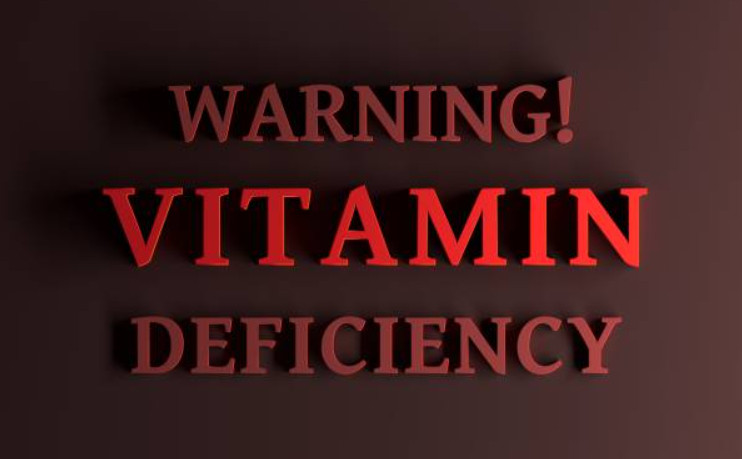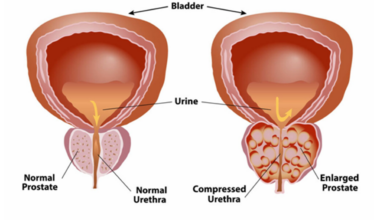Introduction
Vitamins, often underestimated but profoundly vital, are the unsung heroes in our pursuit of well-being. They orchestrate countless biochemical processes that keep our bodies in harmony.
However, when these crucial nutrients are in short supply, they sound an alarm that goes unnoticed far too often. In this comprehensive exploration, we will unveil the hidden dangers of vitamin deficiency, the role of essential vitamins, and how to safeguard against these silent perils.
The Crucial Role of Essential Vitamins
Vitamins fall into two categories, each with its unique significance: water-soluble and fat-soluble. Water-soluble vitamins, such as vitamin C and the B vitamins, are the transient guests in our bodies, requiring regular replenishment. On the other hand, fat-soluble vitamins—A, D, E, and K—find sanctuary in our fatty tissues and liver, offering a more extended stay.
Understanding the functions of these vitamins is important to understand vitamin deficiency symptoms. Vitamin A, for instance, plays a pivotal role in maintaining optimal vision. Its deficiency can lead to poor night vision, dry skin, and heightened vulnerability to infections. The repercussions may even escalate to permanent blindness, infertility, and a compromised immune system.
The B vitamins, a multifaceted group, contribute distinctively to our well-being. Thiamine (B1) keeps fatigue at bay and memory sharp, while riboflavin (B2) is vital for supple lips and protection against cataracts. Niacin (B3) guards against depression and digestive woes, while pyridoxine (B6) is the guardian of nerve health, steering us clear of seizures and neurological disorders. Folic acid (B9) ensures we stay youthful, thwarting gray hair and mouth sores, while cobalamin (B12) maintains balance and energy, shielding us from anemia and neurological troubles.
Vitamin C, the sentinel of immune strength, combats fatigue, muscle weakness, and joint pain. Its scarcity ushers in scurvy, a dread disease marked by bleeding gums and listlessness. And let’s not forget about vitamin D, the sun-soaked guardian of bone health, which prevents bone pain, muscle weakness, and depression. Without it, the specter of osteoporosis and rickets looms ominously.
Common Symptoms of Vitamin Deficiency
The human body, a finely tuned instrument, sends out distress signals when its vitamin reserves run low. Recognizing these symptoms is the first step in the battle against deficiency. Here are some common manifestations of various vitamin deficits:
Vitamin B12 Deficiency: Weariness, weakness, tingling extremities, and memory lapses.
Vitamin E Deficiency: Muscle weakness, vision disturbances, and immune fragility.
Vitamin K Deficiency: Excessive bleeding, easy bruising, and sluggish clotting.
Vitamin A Deficiency:
Symptoms: Diminished night vision, parched skin, heightened infection risk.
Risks: Permanent blindness, infertility, compromised immunity.
Solutions: Include vitamin A-rich foods like carrots, sweet potatoes, and dark leafy greens in your diet.
Vitamin B Deficiency:
B1 (Thiamine) Deficiency:
Symptoms: Fatigue, irritability, cognitive fog.
Risks: Beriberi, Wernicke-Korsakoff syndrome.
Solutions: Embrace thiamine sources like whole grains, legumes, and seeds.
B2 (Riboflavin) Deficiency:
Symptoms: Cracked lips, light sensitivity, tongue sores.
Risks: Anemia, cataracts.
Solutions: Incorporate riboflavin-rich foods like dairy and leafy greens into your diet.
B3 (Niacin) Deficiency:
Symptoms: Depression, skin rashes, gastrointestinal woes.
Risks: Pellagra.
Solutions: Consume niacin-rich foods such as poultry, fish, and fortified grains.
B6 (Pyridoxine) Deficiency:
Symptoms: Anemia, mood swings, nerve damage.
Risks: Seizures, neurological disorders.
Solutions: Add pyridoxine-rich foods like avocados, bananas, and nuts to your diet.
B9 (Folic Acid) Deficiency:
Symptoms: Fatigue, gray hair, mouth sores.
Risks: Neural tube defects in infants.
Solutions: Include folic acid sources like leafy greens, citrus fruits, and beans in your meals.
B12 (Cobalamin) Deficiency:
Symptoms: Fatigue, shortness of breath, balance issues.
Risks: Anemia, neurological disorders.
Solutions: Consume cobalamin-rich animal products or opt for supplements if you follow a vegan diet.
Vitamin C Deficiency:
Symptoms: Fatigue, muscle weakness, joint pain.
Risks: Scurvy.
Solutions: Integrate citrus fruits, tomatoes, and bell peppers into your diet.
Vitamin D Deficiency:
Symptoms: Bone pain, muscle weakness, despondency.
Risks: Osteoporosis, rickets.
Solutions: Embrace sunlight or partake in vitamin D-fortified foods like fatty fish.
The Impact of Vitamin Deficiency on Overall Health
Vitamin deficiencies are more than mere inconveniences; they are saboteurs of our health and vitality. These nutritional deficits undermine our immune defenses, rendering us vulnerable to infections and delayed wound healing. Energy levels plummet, shrouding us in a relentless cloak of fatigue and frailty. Furthermore, they insidiously infiltrate our mental well-being, ushering in mood swings, memory glitches, and even depression.
Should we heedlessly neglect these deficiencies, they transform from quiet adversaries into harbingers of dire health complications. For instance, prolonged vitamin D insufficiency unleashes osteoporosis—a condition that leaves our bones brittle and fragile. On the other hand, vitamin C’s absence can manifest as scurvy, replete with bleeding gums, lethargy, and joint agony.
See Also: 7+ Impressive Cucumber Juice Benefits For Your Health
The Vicious Cycle of Vitamin Deficiency
Essential Vitamins and their Functions: Vitamins, the organic maestros of our bodies, orchestrate various functions critical to our well-being. They facilitate energy production, bolster immune defenses, nurture cell growth, and safeguard cognitive health.
Symptomatology and Detection: Vitamin deficiencies, with their diverse symptoms, send out distress signals that vary depending on the specific vitamin in shortage. Recognizing these signs is the first line of defense against potential deficiencies, as timely intervention is crucial.
The Health Risks of Vitamin Deficiency
Weakened Immune System: Inadequate vitamin intake diminishes the robustness of our immune system, leaving us prone to infections and hindered wound healing. Vitamins A, C, D, and E play pivotal roles in immune function, fortifying our defenses against pathogens.
Increased Risk of Chronic Diseases: Scientific evidence links vitamin deficiencies to a heightened risk of chronic ailments, encompassing cardiovascular disease, cancer, and osteoporosis. For instance, insufficient Vitamin D levels are linked to an increased susceptibility to heart disease, while a dearth of Vitamin K can contribute to the onset of osteoporosis.
Neurological and Cognitive Impairment: Specific vitamins, like Vitamin B12 and Vitamin D, hold the key to cognitive health and brain function. Their deficits can usher in memory glitches, confusion, depressive episodes, and even neurological maladies.
Anemia and Blood Disorders: Vitamin deficiencies, particularly in Vitamin B12, folate, and iron, may result in various forms of anemia. Anemia entails reduced oxygen-carrying capacity in the blood, leading to fatigue, weakness, and overall diminished vitality.
Growth and Development Issues: Inadequate vitamin intake during critical growth phases, such as childhood and pregnancy, can thwart proper development and give rise to a myriad of complications. Folic acid, Vitamin A, and Vitamin D take center stage during these formative periods, ensuring healthy growth and development.
Addressing and Preventing Vitamin Deficiency
Nutrient-Rich Diet: The bedrock of fortifying our vitamin defenses lies in a well-balanced diet. Embrace a spectrum of vibrant fruits, vegetables, whole grains, lean proteins, and heart-healthy fats. Thoughtfully curate your meals to incorporate foods abundant in the vitamins you may be lacking.
Supplementation: In certain scenarios, supplements may become necessary to bridge nutritional gaps. Nevertheless, it is paramount to consult a healthcare professional before embarking on any supplementation regimen. This ensures the correct dosage and averts potential interactions.
Regular Check-ups: Periodic consultations with healthcare providers serve as vital checkpoints for monitoring vitamin levels and addressing deficiencies promptly. These assessments may entail blood tests that offer precise measurements of vitamin levels within the body.
Sunlight Exposure: Vitamin D deficiency is a widespread concern, particularly for individuals residing in regions with limited sunlight exposure or those who predominantly stay indoors. Spending time outdoors in the sunshine stimulates the body’s natural synthesis of Vitamin D. However, it is imperative to protect your skin from excessive sun exposure and seek personalized recommendations from a healthcare professional.
Practice Healthy Lifestyle Habits: Abstaining from excessive alcohol consumption, quitting smoking, and engaging in regular physical activity contribute significantly to overall health. These habits reduce the risk of vitamin deficiencies while fortifying overall well-being.
Recognizing and Treating Vitamin Deficiency
Identifying the telltale signs and symptoms of vitamin deficiency serves as the inaugural step in rectifying the issue. If you harbor suspicions of a particular vitamin deficit, it is imperative to consult a healthcare professional who can conduct the necessary tests to confirm the deficiency.
Treatment for vitamin deficiency usually involves boosting your intake of the deficient vitamin through dietary modifications or supplementation. In some instances, healthcare practitioners may recommend injections or intravenous therapy to expedite the restoration of optimal vitamin levels.
It is crucial to underscore that self-diagnosis and self-treatment are discouraged. Certain symptoms associated with vitamin deficiencies may overlap with manifestations of other underlying health conditions. Therefore, seeking professional medical guidance is paramount for an accurate diagnosis and the formulation of an appropriate treatment plan.
Conclusion
Vitamin deficiencies, the clandestine adversaries of our vitality, wield a profound influence on our health. Recognizing the subtle signs and symptoms they cast is the first step in averting potential harm. By fostering a diet rich in essential nutrients, embracing sunlight and supplementation when necessary, we fortify our bodies against these hidden dangers.









